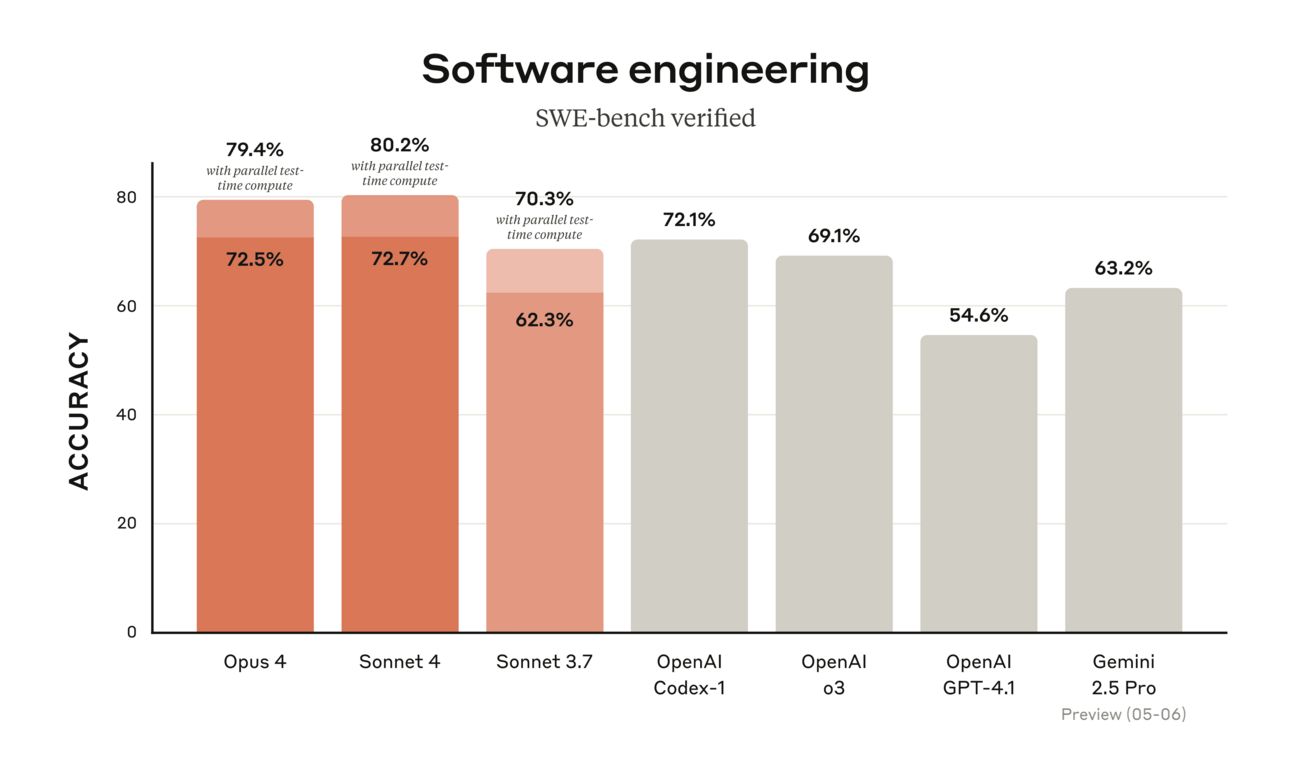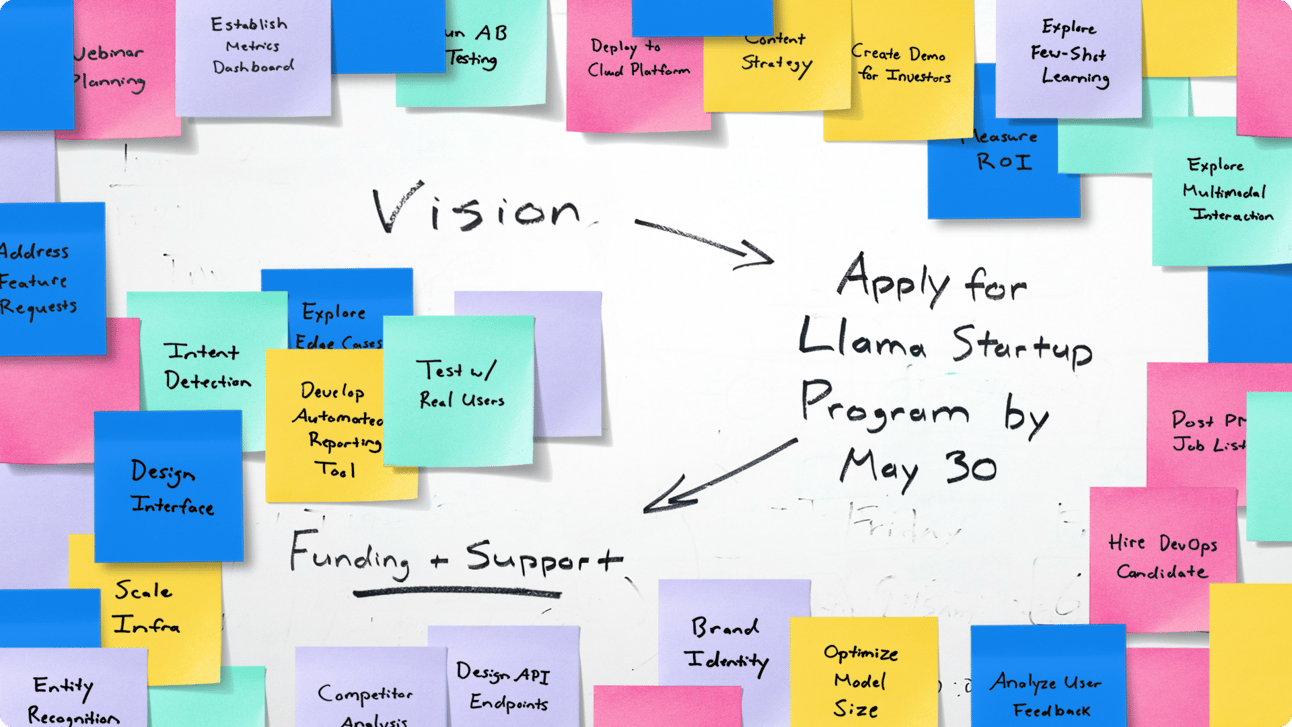- AI Weekly Insights
- Posts
- AI Weekly Insights #79
AI Weekly Insights #79
Claude Thinks Deep, Meta Bets on Startups, and Google Puts AI in Everything
Happy Sunday,
Let’s see what the AI gremlins cooked up while you were busy being human. In this edition of ‘AI Weekly Insights’ #79: Google turns I/O into an all-out Gemini pep rally, Anthropic drops Claude 4 with a memory like an elephant, OpenAI hires Jony Ive to invent a pocket-size chat buddy, and Meta throws free Llama credits at scrappy startups. If last week blurred the line between tool and teammate, this week starts erasing it entirely.
Ready to press play? Let’s roll.
The Insights
For the Week of 05/18/25 - 05/24/25 (P.S. Click the story’s title for more information 😊):
What’s New: Google I/O 2025 was a full-on AI takeover. From Search to smart glasses, Gemini is now baked into nearly every Google product.
Top Announcements:
Gemini Ultra ($249.99/month): A high-end subscription that offers advanced video creation tools (Veo 3 and Flow), smarter AI reasoning (Deep Think), and huge storage perks like 30TB across Google services.
Deep Think (Gemini 2.5 Pro): A new AI feature that checks multiple possible answers to questions, improving accuracy and reliability.
Veo 3: An advanced AI that creates videos automatically, complete with synchronized sound effects and dialogue.
Imagen 4: Google's newest AI image creator, faster and capable of sharper, higher-quality pictures.
Gemini Live: Allows Gemini to see your phone's camera or screen live, letting it interact more naturally and help you in real-time.
Project Mariner: Google's AI assistant for the web that can handle multiple tasks at once, like buying concert tickets without needing your constant input.
AI Mode in Search: Google's search results now include AI-generated summaries, follow-up questions, and easy-to-understand answers to make searching quicker and clearer.
Android XR Smart Glasses: Collaborations with Warby Parker and Gentle Monster aim to produce smart glasses that are both functional and stylish.
Beam 3D Teleconferencing: A new video chat system that uses multiple cameras to show people in realistic 3D, including live translation of conversations.
Why It Matters: If you build, design, or even just use tech, the takeaway is simple: Google wants its AI to stop being a chatbot and start being your co-pilot. Ultra’s giant context windows and Deep Think hint at models that can hold a full project in memory, not just a few questions. Meanwhile, agents like Mariner and Astra show Google inching toward hands-free task execution, whether that’s booking flights or narrating what your camera sees in real time.
For you, that means new workflows (think: voice-first coding, auto-summarized inboxes, and video meetings that feel like holograms). It also means betting on Google’s ecosystem could pay off if these tools stay exclusive. Keep an eye on pricing and privacy, but the feature velocity is undeniable. If you’re an indie dev, marketer, or content creator, it’s probably time to test Gemini APIs and see how these assistants can slot into your own stack.
What's New: Anthropic has released two new models, Opus 4 and Sonnet 4, built to think more clearly, remember more of your chat, and run quick web searches or code checks before they answer.
Whats Inside: Opus 4 is the premium workhorse while Sonnet 4 brings most of the same brainpower to the free Claude app. Both can read huge documents, keep track of long back-and-forth chats, and store key facts in a small memory file so you do not have to repeat yourself. A new switch called Extended Thinking lets Claude pause, fetch fresh information, or test a code snippet to avoid sloppy mistakes. Developers get a boost too: Claude Code now plugs straight into VS Code and JetBrains, and the API adds code execution plus a handy Files endpoint for smoother agent workflows. Despite the upgrades, pricing stays put at fifteen dollars per million input tokens for Opus and three dollars for Sonnet. In short, Claude 4 gives you a smarter, steadier chatbot without a surprise bill.
Why it Matters: Claude 4 shows how fast everyday tools are turning into real digital helpers that can hold context, follow multi-step instructions, and carry a project from start to finish. For writers, it can track characters or brand guidelines across dozens of pages. For coders, it can refactor files, test fixes, and push clean pull requests while you sip coffee. Students can feed it class notes and get clear study guides, and busy parents can dump travel plans or recipes into one chat and let Claude stay organized. Since Sonnet 4 is free on the web and in the mobile app, anyone can try these gains without pulling out a credit card. Opus 4 ups the horsepower for teams that need the extra muscle but does not raise the price, lowering the risk for small shops and indie creators. The bottom line is simple: smarter AI is sliding into familiar apps, and it is getting cheaper or even free to see how it fits your life.

Image Credits: Anthropic
What's New: OpenAI is buying Jony Ive’s hardware startup, io, in a deal worth about $6.5 billion dollars. Ive and roughly fifty‑five engineers will join OpenAI to design a brand‑new device built around ChatGPT.
Inside the Deal: Ive becomes OpenAI’s creative head and will lead a new hardware group focused on a screen‑free “AI companion” no larger than a deck of cards. Early leaks say the gadget will sense its surroundings and talk back using voice, lights, or a tiny projector instead of a bright glass slab. SoftBank’s Vision Fund is expected to co‑invest, giving the project deep pockets for custom chips and the cloud muscle it will need. The io team’s résumé includes the iPod and Apple Watch, so the bet is that they can wrap powerful AI in friendly design that feels less like “tech” and more like a helpful object. Prototypes are rumored for early 2026, and OpenAI plans to ship an SDK so developers can build voice‑only apps before launch.
Why it Matters: Most voice assistants still sit inside phones or smart speakers that rarely feel truly helpful. By giving ChatGPT its own purpose‑built hardware, OpenAI and Ive are chasing the first gadget that could blend always‑on context, natural conversation, and elegant design in one pocketable package. If it works, checking the weather, jotting notes, or translating a street sign could move from screens to simple talk, opening tech to people who hate big phones or struggle with touch targets. The move also cranks up pressure on Apple, Google, and Amazon to rethink their own devices before users trade screens for screen‑free AI. Of course, a constant listener raises fresh privacy worries, so clear rules and easy off switches will matter as much as sleek lines. For our everyday readers, the takeaway is that the next wave of AI may arrive not as another app but as a tiny, friendly gadget you can clip to your jacket and forget.
What's New: Meta launched a program called Llama for Startups that offers young U.S. companies cash credits and hands‑on support to build products on its Llama AI models.
Small, Fast, and Royalty-Free: Any incorporated startup that has raised under ten million dollars and has at least one developer can apply by May 30. Accepted teams get up to six thousand dollars a month in cloud credits for half a year, plus direct help from Meta’s Llama engineers. The package also includes early access to new model features and a private Discord for troubleshooting. Meta says over a billion Llama downloads show growing demand, and it wants the next hit apps using its open‑weight models, not rival offerings. The program arrives just weeks after reports that Meta delayed its big Llama 4 “Behemoth” release, so bolstering the smaller but proven Llama versions may be a strategic pivot.
Why it Matters: For founders, training a large‑language model from scratch is like building a rocket in the garage, and even renting top‑tier GPUs can torch a seed budget. Meta’s credits and coaching shrink that barrier, letting tiny teams test AI ideas without begging VCs for extra funds. If the program works, it could spark a wave of Llama‑powered chatbots, analytics tools, and creative apps that stay affordable because the underlying model is open and the startup’s burn rate is lower. For Meta, every successful launch deepens its ecosystem and counters Google’s Gemini or OpenAI’s GPT push, turning openness into a competitive edge. The bigger picture for our readers: cheaper, more diverse AI tools tend to arrive faster when big platforms sponsor the little guys, so the apps you try next year might owe their existence to a few free months of Llama juice.

Image Credits: Meta
And that wraps another lap around the AI carousel. From pocket companions to free-range language models, the tech is slipping deeper into everyday life, quickly and without a user manual. Whether you’re tinkering with the latest APIs or just eavesdropping on the hype, remember: curiosity beats complacency, and a well-timed question can save hours of refactoring.
Stay sharp, stay playful, and keep your test data clean.
Catch you next Sunday.
Warm regards,
Kharee